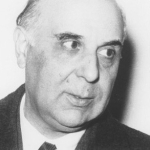Confess: it’s my profession
that alarms you.
This is why few people ask me to dinner,
though Lord knows I don’t go out of my way to be scary.
I wear dresses of sensible cut
and unalarming shades of beige,
I smell of lavender and go to the hairdresser’s:
no prophetess mane of mine,
complete with snakes, will frighten the youngsters.
If I roll my eyes and mutter,
if I clutch at my heart and scream in horror
like a third-rate actress chewing up a mad scene,
I do it in private and nobody sees
but the bathroom mirror.
In general I might agree with you:
women should not contemplate war,
should not weigh tactics impartially,
or evade the word enemy,
or view both sides and denounce nothing.
Women should march for peace,
or hand out white feathers to arouse bravery,
spit themselves on bayonets
to protect their babies,
whose skulls will be split anyway,
or, having been raped repeatedly,
hang themselves with their own hair.
These are the functions that inspire general comfort.
That, and the knitting of socks for the troops
and a sort of moral cheerleading.
Also: mourning the dead.
Sons, lovers, and so forth.
All the killed children.
Instead of this, I tell
A blunt thing, not lovely.
The truth is seldom welcome,
especially at dinner,
though I am good at what I do.
My trade is courage and atrocities.
I look at them and do not condemn.
I write things down the way they happened,
as near as can be remembered.
I don’t ask why, because it is mostly the same.
Wars happen because the ones who start them
think they can win.
In my dreams there is glamour.
The Vikings leave their fields
each year for a few months of killing and plunder,
much as the boys go hunting.
In real life they were farmers.
They come back loaded with splendour.
The Arabs ride against Crusaders
with scimitars that could sever
silk in the air.
A swift cut to the horse’s neck
and a hunk of armour crashes down
like a tower. fire against metal.
A poet might say: romance against banality.
When awake, I know better.
Despite the propaganda, there are no monsters,
or none that can be finally buried.
Finish one off, and circumstances
and the radio create another.
believe me: whole armies have prayed fervently
and been slaughtered anyway.
Brutality wins frequently,
and large outcomes have turned on the invention
of a mechanical device, viz. radar.
True, valour sometimes counts for something,
as at Thermopylae. Sometimes being right—
though ultimate virtue, by agreed tradition,
is decided by the winner.
Sometimes men throw themselves on grenades
and burst like paper bags of guts
to save their comrades.
I can admire that.
But rats and cholera have won many wars.
Those, and potatoes,
or the absence of them.
It’s no use pinning all those medals
across the chests of the dead.
Impressive, but I know too much.
Grand exploits merely depress me.
In the interests of research
I have walked on many battlefields
that once were liquid with pulped
men’s bodies and spangled with exploded
shells and splayed bone.
All of them have been green again
by the time I got there.
Each has inspired a few good quotes in its day.
sad marble angels brood like hens
over the grassy nests where nothing hatches.
(The angels could just as well be described as vulgar
or pitiless, depending on camera angle.)
The word glory figures a lot on gateways.
Of course I pick a flower or two
from each, and press it in the hotel Bible
for a souvenir.
I’m just as human as you.
But it’s no use asking me for a final statement.
As I say, I deal in tactics.
Also statistics:
for every year of peace there have been four hundred
years of war.



















Comment form: